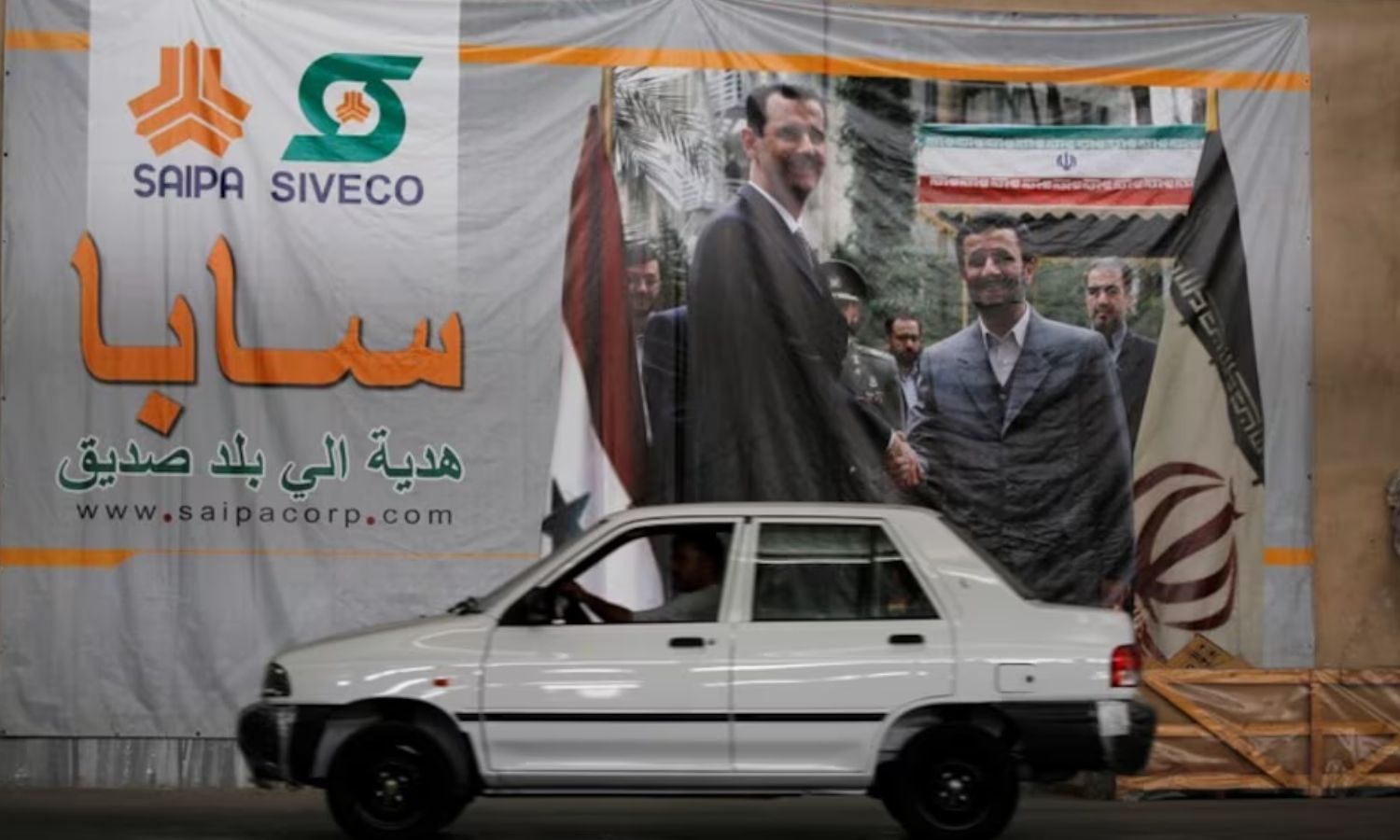



The Secretary-General of the Iranian-Syrian Joint Chamber of Commerce, Saeed Aref, announced the closure of the Saipa car factory in Syria.
According to a report published by the Iranian agency Ilna on November 16, Aref explained that “other factories established by Iran in Syria are also not operational due to issues related to both countries.”
He added that despite Iran spending at least $25 billion to support the Syrian regime, it has not achieved “tangible economic gains from the reconstruction of Syria.”
According to Iranian media, the factory was subjected to an airstrike last October, which exacerbated the stagnation of the industry.
Regime media noted at the time that the Israeli bombing targeted a car assembly plant without naming it.
Ilna agency added that other industrial projects established by Iran in Syria have not entered into operation, attributing the reason to “issues related to both countries.”
On another note, Aref stated that despite the “good political relations between the two countries,” the trade value in recent years reached $350 million.
He attributed the imbalance in trade between Syria and Iran to the fact that Iranians cannot import Syrian goods because Syrian export products “are either produced and exported in Iran” on one hand.
On the other hand, it is possible that “there is simply no demand for them in Iran,” he noted.
Located in the industrial city of Homs, it was opened by Iran in the presence of the Syrian regime’s president, Bashar al-Assad, in December 2007.
The company was named “Siveco,” with shares split between the Saipa company at 80% and the Syrian regime at 20%.
However, production in its Homs factory halted after the outbreak of the Syrian revolution in 2011, and the expansion of military operations on the ground.
Production operations returned to the factory again in 2018.
Iranian websites had published a video from within Saipa company, showing individuals in military uniforms and white turbans, walking around the factory, speaking in Persian.
The video also displayed pictures of Iranian Revolutionary Guard Corps (IRGC) leaders hanging on the factory walls during a visit that took place in April 2019.
Iran and Syria have often announced economic agreements and memorandums of understanding for “strategic and long-term cooperation,” the latest being a “twinning agreement” last September, to cooperate in several areas, including transport, solid waste management, automation and electronics, in addition to religious and therapeutic tourism, with various steps taken to contribute to the reconstruction.
Last July, Tehran hinted at an economic leverage considered by experts to be a pressure tool on the regime when the then-Iranian president, Mohammad Mokhber, sent a “long-term strategic cooperation agreement draft with Syria” to the Iranian parliament for ratification before handing over his duties to Masoud Bezhakian.
The Syrian regime signed at least 126 agreements with Iran across various sectors between 2011 and 2024, such as energy, trade, health, education, agriculture, industry, communications, and financing, according to the Jusoor for Studies Center.
Among the total 126 agreements, 43 were implemented, while 47 are still in progress, and there are 25 agreements under partial or intermittent execution. The agreements that have not been implemented are 4.
A common characteristic has been observed in the Iranian economic pursuits in Syria, which is success in concluding agreements but failure to transform them into reality, due to three main factors: Russian competition, the impact of Western sanctions, and the economic weakness in Syria, according to a study by the Syrian Dialogue Center in 2022.
if you think the article contain wrong information or you have additional details Send Correction